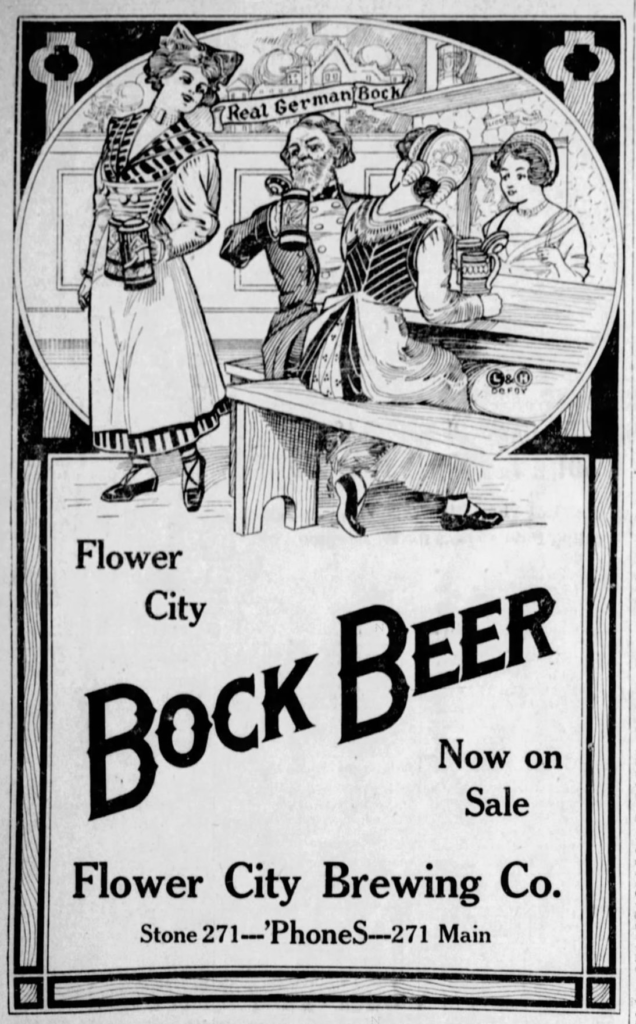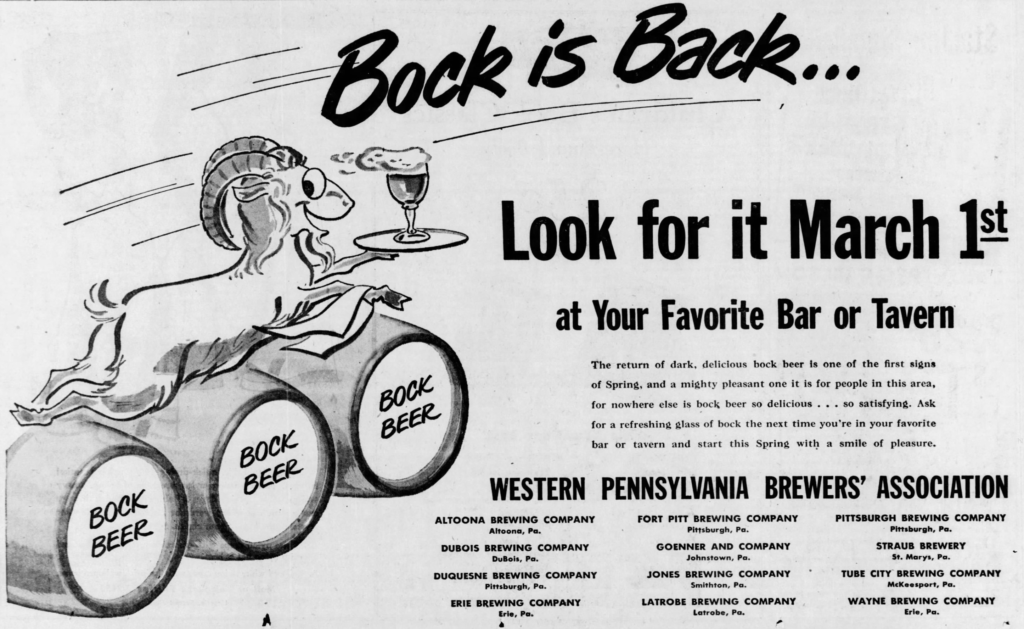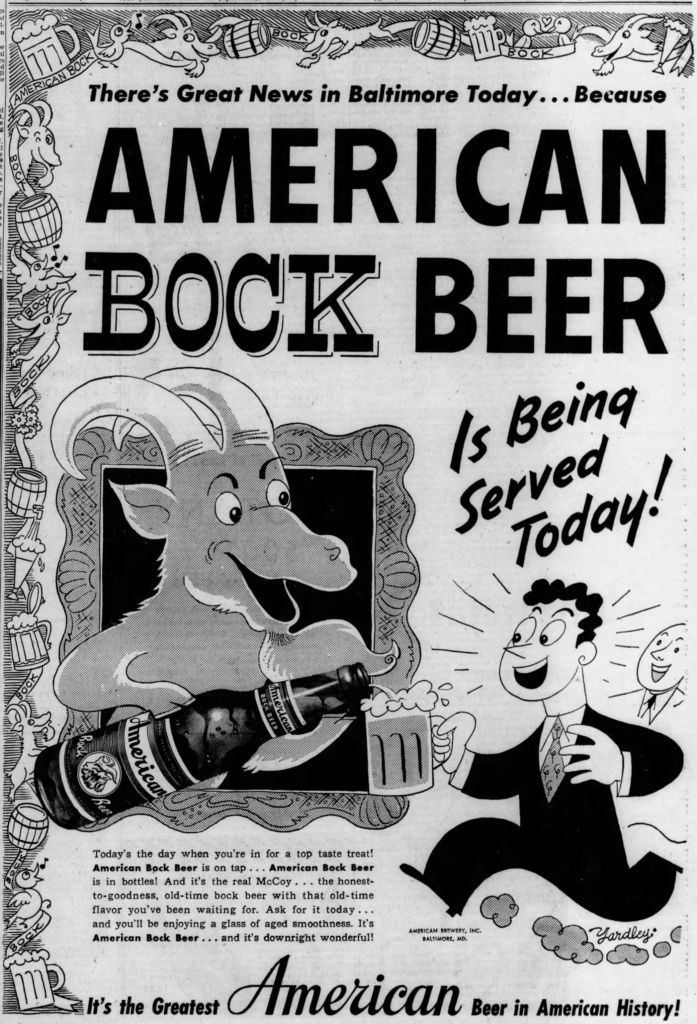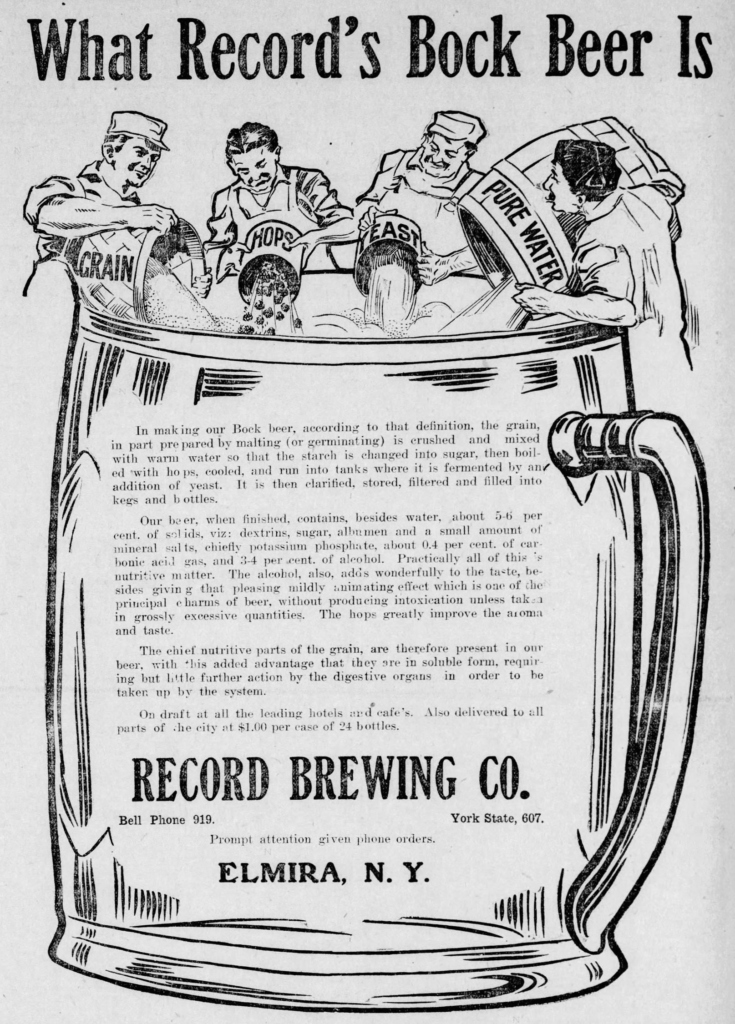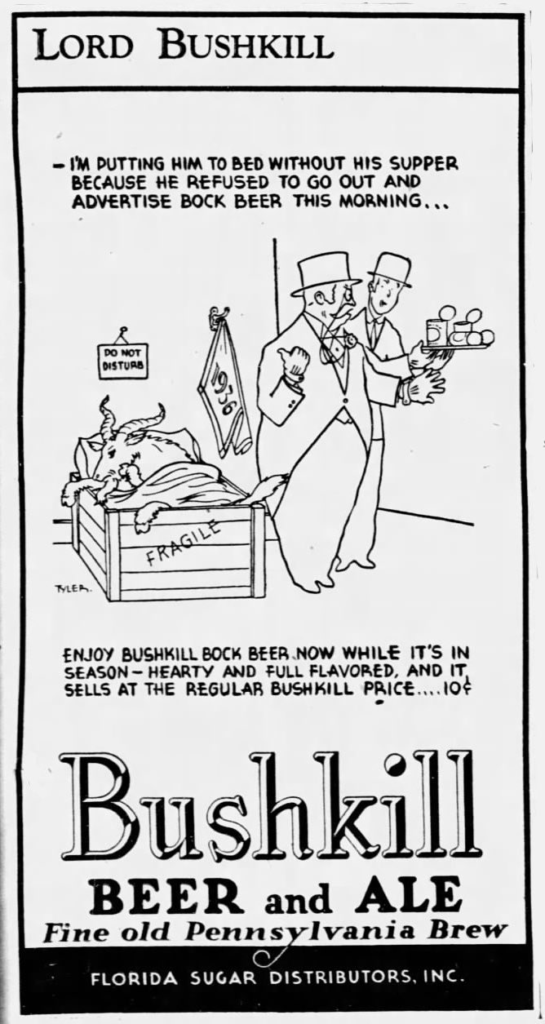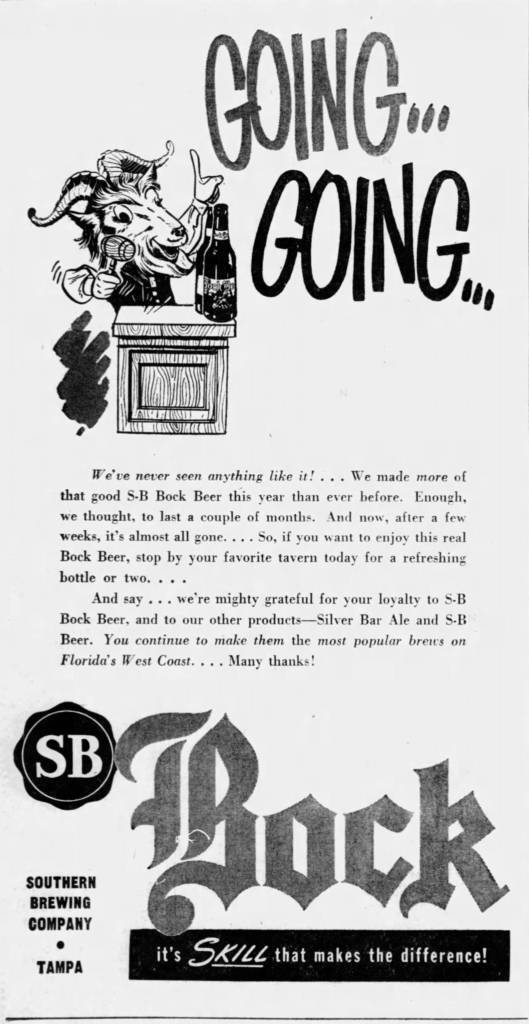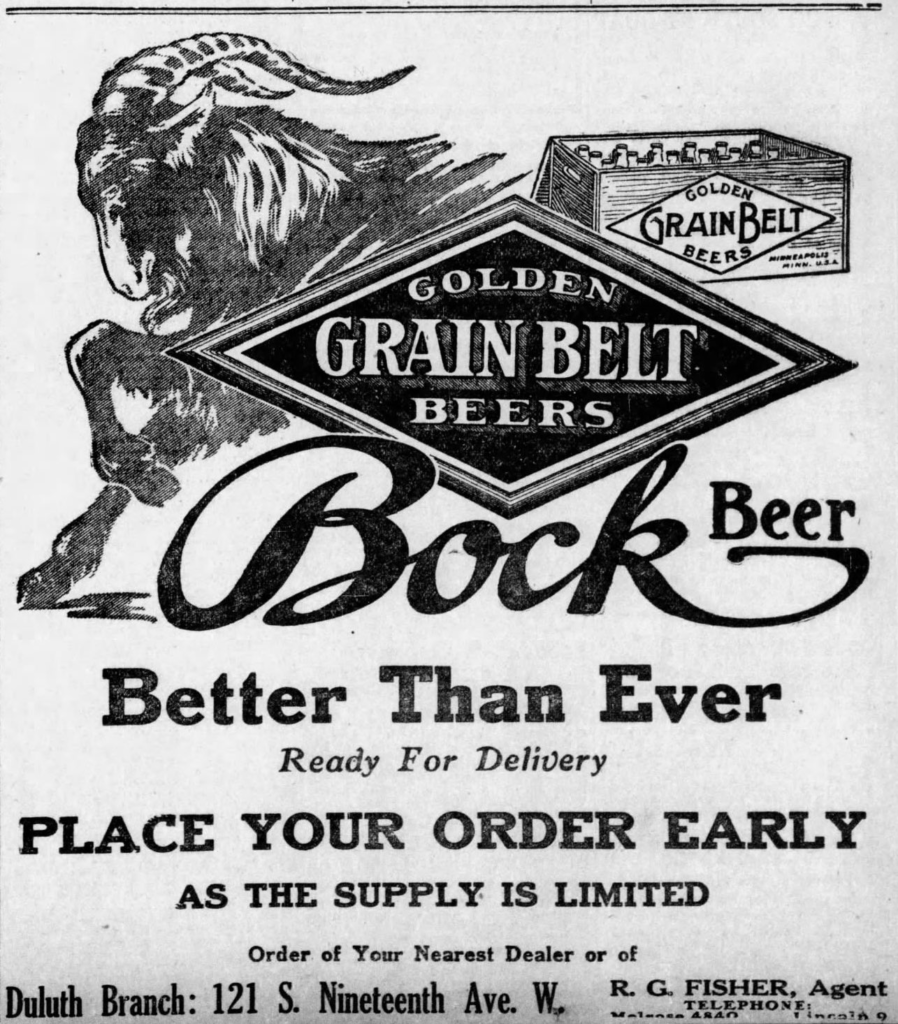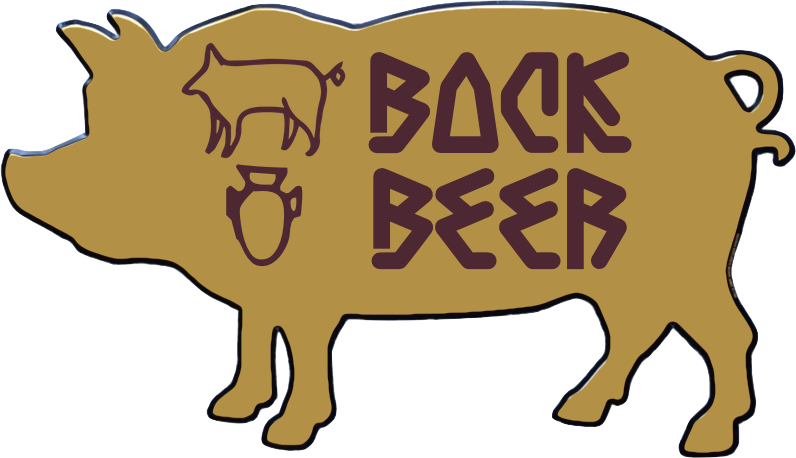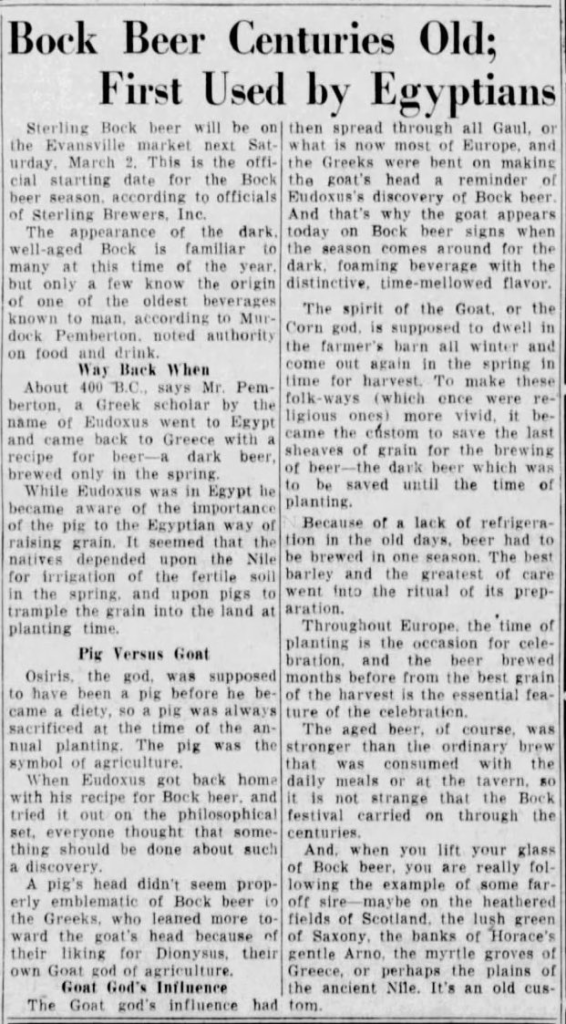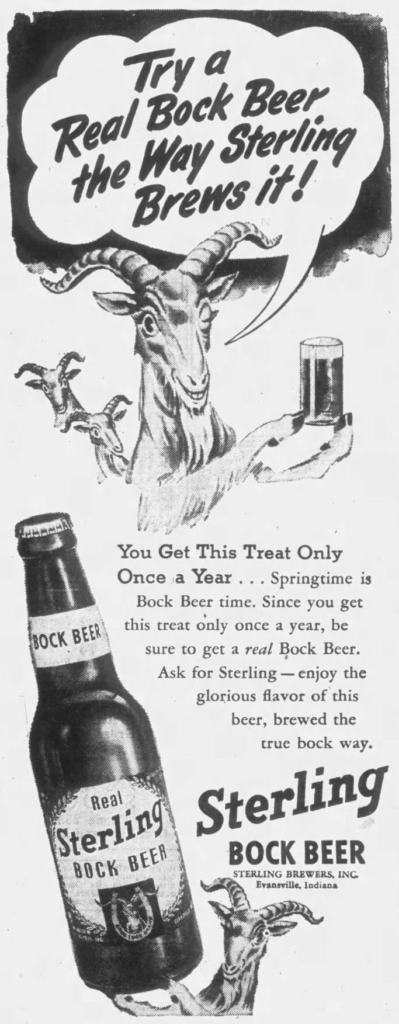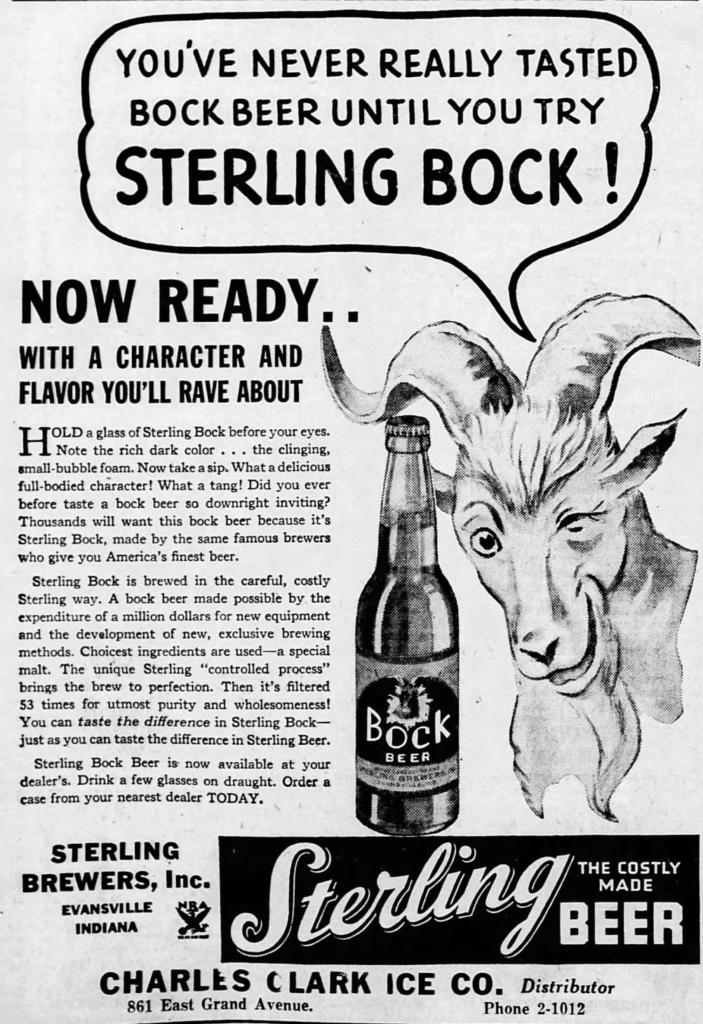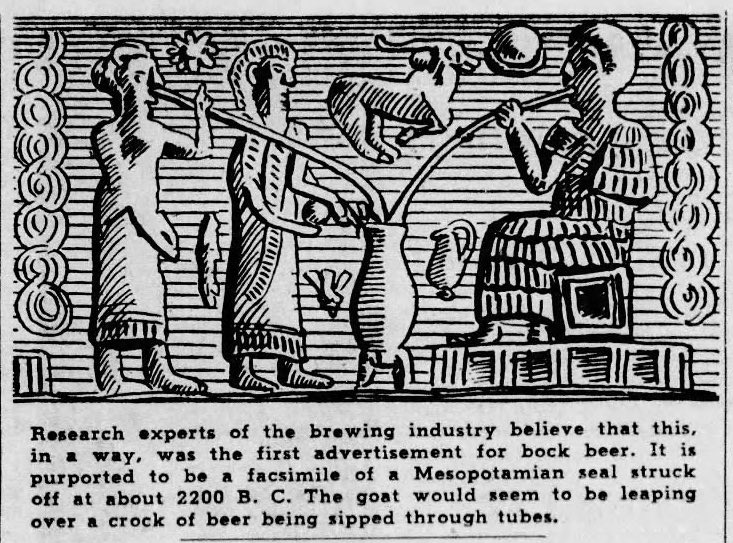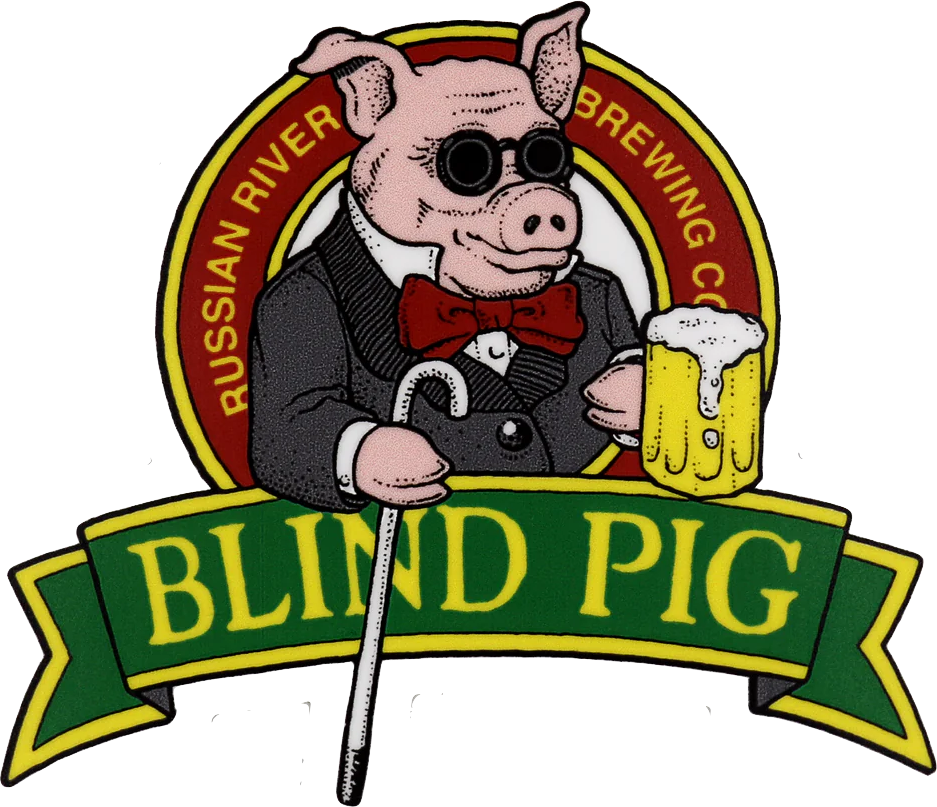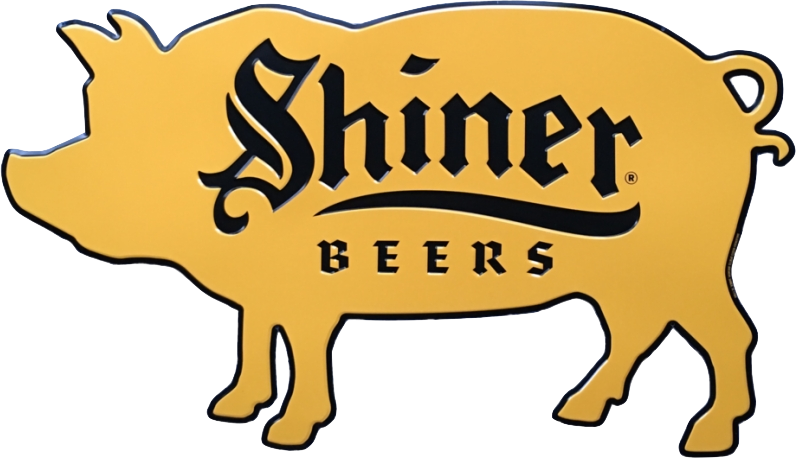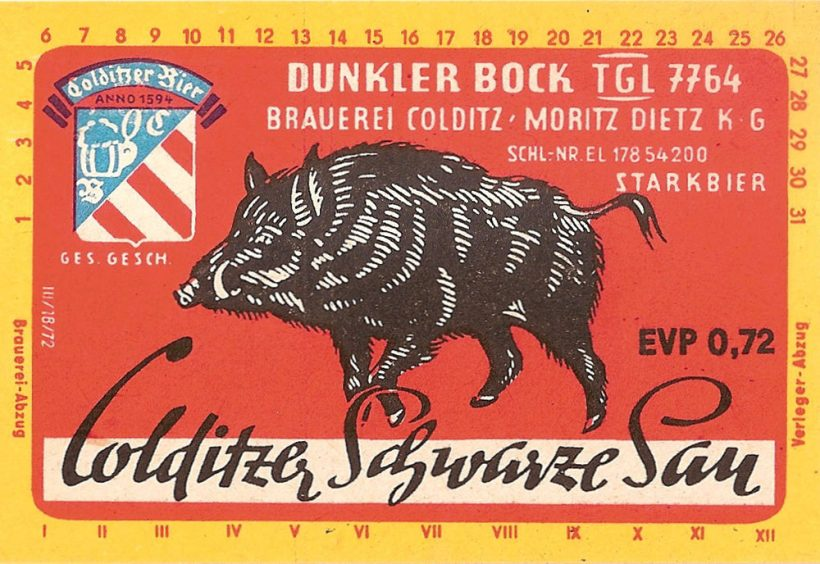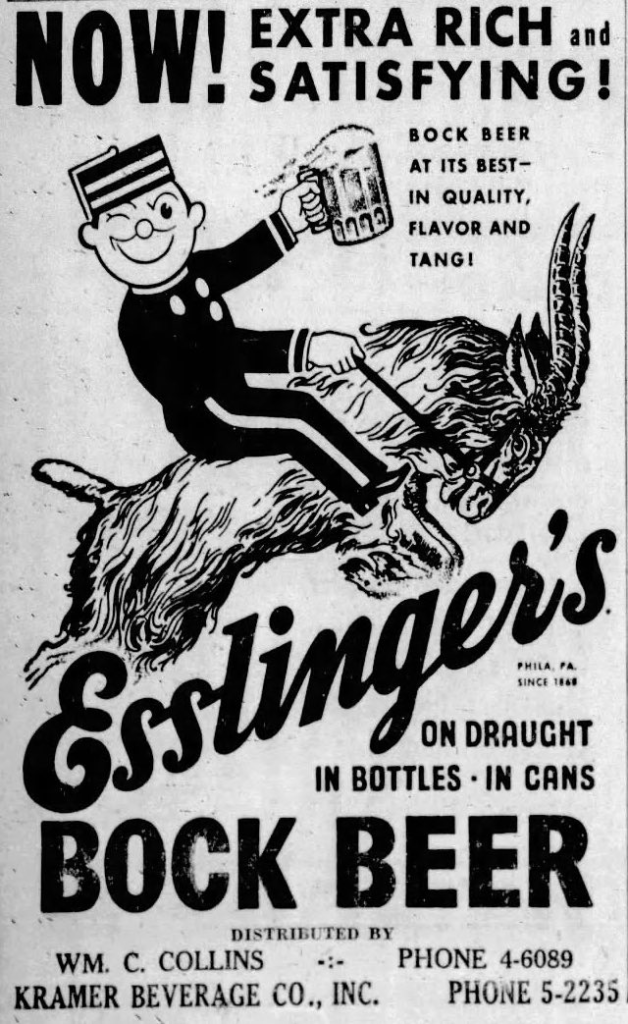
Two years ago I decided to concentrate on Bock ads for awhile. Bock, of course, may have originated in Germany, in the town of Einbeck. Because many 19th century American breweries were founded by German immigrants, they offered a bock at certain times of the year, be it Spring, Easter, Lent, Christmas, or what have you. In a sense they were some of the first seasonal beers. “The style was later adopted in Bavaria by Munich brewers in the 17th century. Due to their Bavarian accent, citizens of Munich pronounced ‘Einbeck’ as ‘ein Bock’ (a billy goat), and thus the beer became known as ‘Bock.’ A goat often appears on bottle labels.” And presumably because they were special releases, many breweries went all out promoting them with beautiful artwork on posters and other advertising. With Spring approaching, there are so many great examples that I’m going to post two a day for a few months.
Sunday’s first ad is for Flower City Bock Beer, which was published on March 1, 1913. This one was for the Flower City Brewing Co., of Rochester, New York, which was founded in 1902, I think. In a somewhat confusing twist, there was also a Flower City Brewing Co. located in nearby Orlean, New York that was only in business from 1907-1920 as the Orlean Brewing Co., but was called Flower City for just two years, from 1933-34. This ad ran in The Democrat and Chronicle, also of Rochester, New York.
